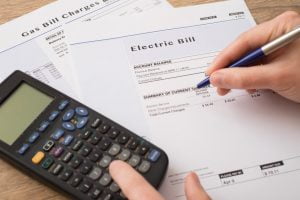Helpful real estate due diligence links in New York in 2023
Go Back To Previous PageWhen you are buying or selling property, it can feel like a lot is happening all at once. For example, the deal is finalized briefly after signing the purchase contract. Then, the contract is drafted and negotiated. Therefore, the building’s board and management provide various “due diligence” materials. What is the due diligence in residential or commercial real estate, and how long is the due diligence period? Also, what does the due diligence process entail? Publicly available information is abundant. Also, those data can assist clients and brokers in being as educated as possible throughout this process. Luckily, we have put together a real estate due diligence checklist.
Thus, we have gathered some go-to resources that we often use ourselves. Those are the best due diligence links and real estate due diligence checklists homebuyers can find. Lastly, please contact us for additional assistance if you have questions about utilizing them. Your real estate agent can help you navigate. The links come on top of the questionnaire the property management must fill out during the due diligence.
Step 1 of due diligence links: NYC Property Tax Bills
New York City real estate tax bills are now available to view and download online to begin the real estate due diligence checklist. Therefore, this can help confirm a Seller’s representations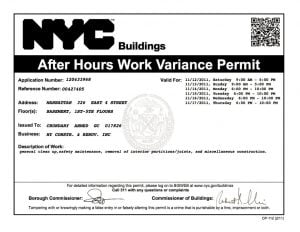 of the annual taxes due.
of the annual taxes due.
It helps assess if the property is in arrears. Use the following portal to view and download bills and confirm the payment history for any New York City property.
NYC Department of Buildings
The New York City Department of Buildings (“DOB”) tracks various property information. Those data include complaints, violations, construction/plumbing applications and permits, and inspections. It also tracks and publishes current Certificates of Occupancy and Temporary Certificates of Occupancy of record.
Confirm if there are open violations or permits against a unit or building. Lastly, you can also see if its Certificate of Occupancy is still current.
Best due diligence links: ACRIS
ACRIS (the “Automated City Register Information System”) hosts the accepted land records of the New York, Kings, Queens, and Bronx County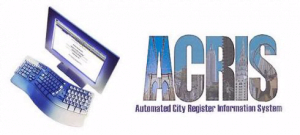 Clerks. This tool provides real estate professionals access to most records filed against New York City properties in those counties.
Clerks. This tool provides real estate professionals access to most records filed against New York City properties in those counties.
However, there is some inconsistency in the availability of documents over 15 years old. Lastly, ACRIS can even search for land records against cooperative apartments, and this option can help confirm early in the process if there are any outstanding liens against a unit.
Use ACRIS to determine a property’s tax block and lot, find property deeds, mortgages, and UCC financing statements, and identify easements or restrictions on the use of the property.
NYC Offering Plan & Amendments
The Real Estate Finance Bureau of the Office of the Attorney General hosts a helpful lookup tool to confirm if the Attorney General’s Office has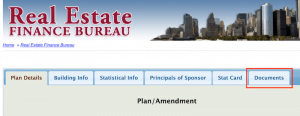 approved an Offering Plan and any amendments. It can eliminate the guesswork of determining how many amendments have been filed.
approved an Offering Plan and any amendments. It can eliminate the guesswork of determining how many amendments have been filed.
It provides the most recent count for older buildings and coops. Use the Real Estate Finance Bureau’s lookup tool here. This is a significant due diligence link.
Foreign Buyers in NYC: Tax Treaty and Tax Liability
Buying property in the United States can sometimes be a taxing experience for foreign home buyers. Indeed, they should know the tax implications of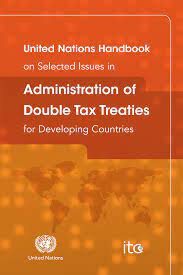 acquiring property within the United States. The Federal Government has many treaties with numerous foreign countries.
acquiring property within the United States. The Federal Government has many treaties with numerous foreign countries.
These treaties can grant foreign residents reductions and exemptions from the federal estate, income, and gift taxes. All tax treaties are available to the public on the IRS website.
NYC Government Website: Private Homeowner Resources
New York City has an entire website for private homeowners. This website contains links for paying for New York City services and making a coop or condominium complaint. This feature includes reporting issues arising from bright lights in parking lots, noises from an air conditioner or ventilation equipment, and even a noisy neighbor.
The website also contains links for Property Value Assessments, ACRIS, and the New York City Office of the Taxpayer Advocate, making it great due diligence in the real estate link.
DOB Now
DOB NOW is the Department of Buildings’ self-service online tool. It allows Owners, Designer Professionals, Licensees, and Filing Representatives to do business with the Department of Buildings online easily. For instance, this tool will enable customers to submit applications, make payments, schedule appointments, check the status of an application or inspection, pull permits, and renew.
to do business with the Department of Buildings online easily. For instance, this tool will enable customers to submit applications, make payments, schedule appointments, check the status of an application or inspection, pull permits, and renew.
The website splits into four sections for simple access: Inspections, Build, Safety, and Licensing and can be accessed here:
Open Accessible Space Information System (OASIS)
OASIS provides geographic maps, allowing users to obtain valuable information about individual properties. Available data include land use, zoning, ownership, and where a parcel is located in the neighborhood context.
Therefore, this can be useful in determining if the community is suitable for you or finding environmental reports. Users can use the map to locate surrounding parks, schools, restaurants, public transit, and other essential decision-making factors.
Last but not least, due diligence link: NYC Department of City Planning
The NYC Department of City Planning provides a tool to search for information on any property in New York City, including Block/Lot, Cross Streets, Zoning and Land Use, Ownership, Demographics, and much more. Therefore, the tool allows users to compare the information in a selected area to New York City.
Zoning and Land Use, Ownership, Demographics, and much more. Therefore, the tool allows users to compare the information in a selected area to New York City.
Lastly, if you want to discuss any of the output of those due diligence links, feel free to reach out to NestApple. Therefore, we will help you navigate this real estate due diligence checklist and the meaning of due diligence in real estate.
